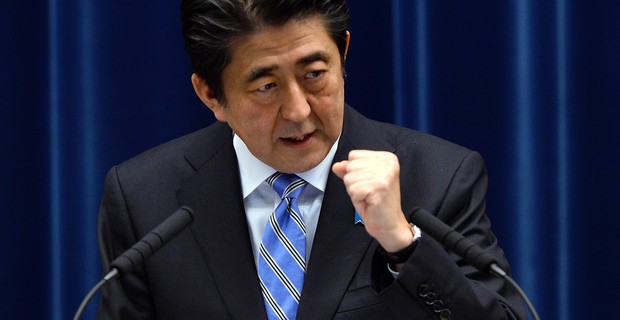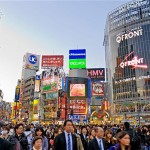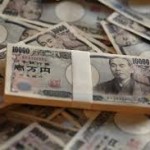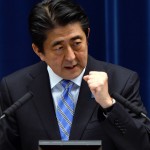Japan Elections Bring Noise, White Gloves and Stock Gains

When an election is called in Japan, this is what happens: candidates with megaphones roam streets in minivans, party leaders give speeches outside Tokyo train stations, and stocks gain until polling day.
In 11 elections since 1980, the Topix (TPX) index has posted average total returns of 3.1 percent between the dissolution of parliament and the vote, according to data compiled by Bloomberg and Daiwa Securities Group Inc. Citigroup Inc. says the same will happen this time. The Topix jumped 2.7 percent last week on speculation Prime Minister Shinzo Abe would delay a planned sales-tax increase and send voters back to the polls.
Parliament will be dissolved on Nov. 21, Abe said at a press conference yesterday. The premier also ordered ministers to start preparing a stimulus package, he said. Real estate developers and financial firms will be the winners as asset prices climb, with retailers advancing amid anticipation of a pickup in spending, according to Citigroup.
“The postponement of the consumption tax means Abe is putting top priority on getting Japan out of deflation,” Kenji Abe, Tokyo-based equity strategist at Citigroup, said in a phone interview Nov. 14. “That’s going to be very positive for Japanese equities.”
He’ll probably pick Dec. 14 for the vote, according to people with knowledge of the ruling party’s strategy. The Topix climbed 0.1 percent in Tokyo today, while the Nikkei 225 Stock Average (NKY) slid 0.3 percent.
Elections are a noisy time in Japan, with candidates wearing white gloves traveling the streets of Tokyo starting in the early morning. They shout out their names through a megaphone and urge the public to vote for them. Party leaders and others stand on the top of trucks outside train stations, doing the same.
Koizumi, Hatoyama
The Topix gained in nine of the 11 runup periods to the polls, the data show. The largest advance was 8.5 percent in 2005, when Junichiro Koizumi dissolved the lower house of parliament after bills to privatize Japan Post failed to pass in the upper chamber. The second-biggest was 7.5 percent in 2009 after Yukio Hatoyama of the Democratic Party defeated the ruling coalition. The gauge lost 2.7 percent in 2003 as Koizumi won the vote with a reduced majority.
The rising pattern holds true for the Nikkei 225, according to a report by Daiwa technical analysts led by Eiji Kinouchi dated Nov. 12, which examined the price-weighted measure’s reactions in election runups. The Nikkei 225 Stock Average returned an average 3.6 percent in the 11 periods since 1980, the data show.
Kenji Shiomura, a senior strategist at the brokerage in Tokyo, says this time may be different. He says the market has already priced in a delay in raising the sales tax.
Market Rally
The Topix surged 19 percent from an Oct. 17 low through last week after the Bank of Japan unexpectedly added to monetary easing, the nation’s $1.1 trillion pension fund said it would buy more local shares and reports appeared in local media that Abe wouldn’t go through with the levy.
The Topix tumbled 2.5 percent on Nov. 17 after data showed Japan’s economy slipped into recession. All economists surveyed by Bloomberg had projected a rebound in the third quarter. The stock gauge rebounded 2.1 percent yesterday.
Postponing the increase to the tax would add about 0.3 percentage point to growth next year and 0.2 point in 2016, according to a report by UBS AG economist Daiju Aoki and strategist Tomohiro Okawa.
In 1997, then-Prime Minister Ryutaro Hashimoto oversaw a 2 percentage point boost in the tax. The move cost him his job as Japan sank into a recession with consumption deteriorating against a backdrop of weakening demand abroad due to the Asian financial crisis.
‘Significant Rally’
“The administration could win the general public’s approval for a sales-tax hike despite likely anemic economic growth,” Daiwa’s Kinouchi wrote in the Nov. 12 report. “The stock market would stage a significant rally, as in 2005 when then prime minister Junichiro Koizumi dissolved the lower house over postal privatization.”
Source: Bloomberg – Japan Elections Bring Noise, White Gloves and Stock Gains





























